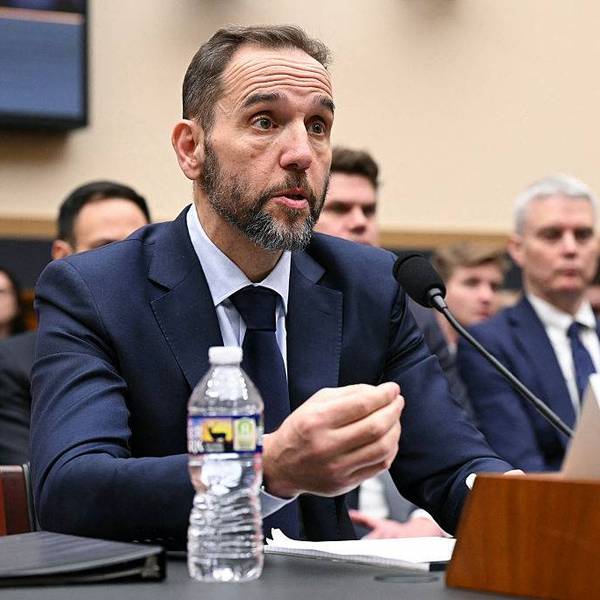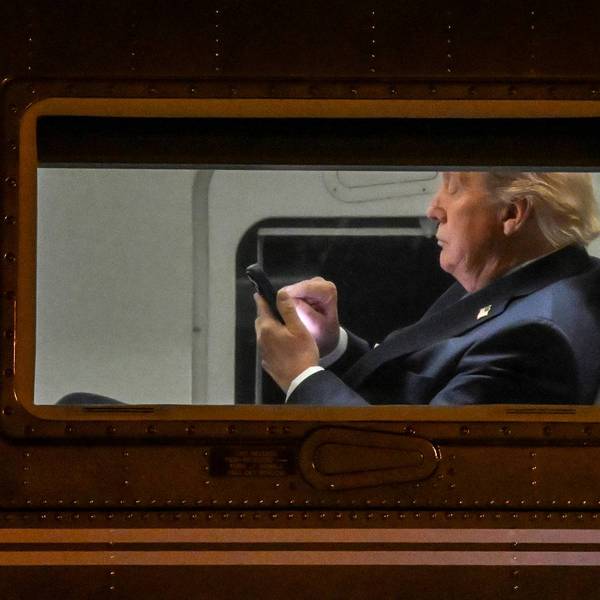The Washington Post has reported that Trump "has gone to extraordinary lengths to conceal details of his conversations with Russian President Vladimir Putin, including on at least one occasion taking possession of the notes of his own interpreter, and ordering the linguist not to discuss what had transpired with other administration officials.
As a result, U.S. officials have said there is no detailed record, even in classified files, of Trump's face-to-face interactions with the Russian leader at five locations over the past two years.
This is unprecedented in Presidential history, and truly chilling.
This is unprecedented in Presidential history, and truly chilling. After all, fourteen U.S. intelligence agencies have already concluded that Russia interfered with the 2016 elections, and Trump and his campaign is under investigation for possible conspiracy and obstruction of the probe.
Without a written record, there is no way for the American public, Robert Mueller, or even top Trump national security advisors to know what he discussed with Putin on multiple occasions, what promises he may have made to the Russians, or even what instructions he may have received from Putin.
A Legal and Constitutional Violation
Trump presumptively violated the law and the Constitution by keeping or destroying his interpreter's notes, or indeed if he failed to have notes of meetings with Putin and other foreign leaders taken and preserved.
The Presidential Records Act (44 U.S.C. Chapter 22) requires the President to retain all "documentary material" he or his office receives or creates which "relate to or have a direct effect upon the carrying out of constitutional, statutory, or other official or ceremonial duties of the President" and to promptly deposit them with the National Archivist. If Trump personally kept the translator's notes, or worse, destroyed them, instead of turning them over to the National Archivist, he presumptively broke this law.
The Presidential Records Act also mandates that the President take all necessary steps to assure that the "activities, deliberations, decisions and policies that reflect the performance of the President's... duties are adequately documented... and... preserved."
Trump's failure or refusal to have notes taken and archived documenting his meetings and calls with Putin and other foreign leaders likely violates this part of the law.
Moreover, by evading this law, Trump is also likely violating Article 2 of the Constitution which requires that the President "take care that the laws be faithfully executed." If, as the Washington Post reported, Trump went to extraordinary lengths to conceal his conversations with Putin and prevented notes from being taken and preserved, he actively took care that the laws be faithfully violated.
Are Trump's Actions Reflective of a Guilty Mind?
As The New York Times reported last week, in early 2017 the FBI was so concerned about Trump's behavior with regards to Russia that it took the unprecedented step of opening a counterintelligence investigation into whether the President of The United States "had been working on behalf Russia against American interests."
What reason would Trump have for going to such lengths to destroy or prevent the existence of any documentary record of his multiple meetings with Putin unless things were said that Trump doesn't want the public, or even his top security advisors, to know.
What reason would Trump have for going to such lengths to destroy or prevent the existence of any documentary record of his multiple meetings with Putin unless things were said that Trump doesn't want the public, or even his top security advisors, to know. In the context of charges of cooperation between Trump and his campaign with Russia, it's hard to think of an explanation other than Trump's fear that it would be revealed he was cooperating with Putin to hurt America.
Such steps by Trump are also evidence of a guilty mind or mens reas. Taking such extraordinary steps at concealment are evidence of intent to break the law. And intent is an important element of several of the potential crimes Mueller is investigating.
In any case, add violating the Presidential Records Act to the laws Trump has broken. Then add, as well, Trump failing to ensure that the laws be faithfully executed to his Constitutional violations.
Will Congress - including the Republicans who control the Senate - finally step up to their responsibility as a co-equal branch of government to stop Trump?




